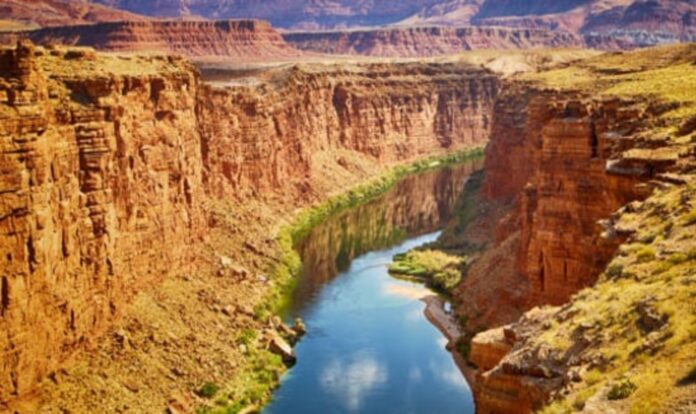As global warming intensifies, the United States is grappling with severe repercussions, particularly in the southern region where extreme temperatures and heatwaves are becoming increasingly common. According to a CNN report, the Colorado River Basin has experienced a staggering loss of more than 10 trillion gallons of water between 2000 and 2021, attributed to rising temperatures. This voluminous loss is equivalent to the entire capacity of Lake Mead, one of the largest reservoirs in the country. The Colorado River is a vital lifeline, running through seven Western states and providing water for essential purposes such as drinking and irrigation to around 40 million Americans.
However, research conducted by UCLA highlights the alarming impact of human-induced climate change on the river’s flow, which has experienced a significant decline of approximately 10% over the last two decades due to extreme temperatures in the West. The ramifications of climate change on the basin were felt acutely when a Tier 1 water shortage was declared in January 2022. In response to even lower water levels in Lake Mead, a Tier 2 shortage was implemented in January 2023, further exacerbating the crisis.
The situation has reached a critical point, with the water level in Lake Mead plummeting by an alarming 20 feet over a mere four months last summer. In July 2022, the lake’s elevation hit a historic low of 1040 feet, raising concerns that it might soon reach “dead pool,” a point where it can no longer provide water or hydroelectric power to millions of Americans. One of the significant contributors to this crisis is the increased evaporation in snowier states like Colorado, where the headwaters of the Colorado River originate. Rising temperatures have accelerated the melting of snowpacks, exposing darker ground that absorbs more heat, further contributing to the reduced water flow.
Benjamin Bass, a water resources engineer and lead author of the UCLA study, explained that the reduction of water is occurring “twice as fast” in snowier regions, primarily due to the positive albedo effect. The urgency of the situation cannot be overstated, as the Colorado River Basin faces an unprecedented water loss that is taking a toll on the livelihoods of millions of Americans who rely on this crucial water source. The study conducted by UCLA underscores the need for immediate action to address the devastating impacts of anthropogenic climate change and safeguard the future of this invaluable river system.


